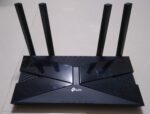Apple is speeding up its work on AI-powered smart glasses for a late 2026 release, directly challenging Meta’s Ray-Ban smart glasses that have become increasingly popular. The company reportedly plans to start making large numbers of prototypes with overseas partners by the end of 2025.
These glasses are expected to come equipped with cameras, microphones, and speakers that would let the device analyze what’s around you and respond when you talk to Siri. Users would likely be able to take calls, listen to music, get directions, and translate languages in real-time—all without using their hands.
One insider described Apple’s upcoming glasses to Bloomberg as “similar to the Meta product but better made.”
Apple’s smart glasses project (which has shifted from codename “N50” to “N401”) emerges as competition in AI wearables grows fiercer. Meta’s Ray-Ban glasses have sold well, with over a million units purchased in 2024. Meta aims to boost production to 10 million units yearly by the end of 2026.
The tech giant is reportedly designing a special chip just for these glasses to ensure they perform well and respond quickly to AI tasks. Unlike the bulky Vision Pro headset, these glasses will look more like regular sunglasses that people can comfortably wear every day.
Similar Posts
To focus on developing these glasses, Apple has reportedly canceled plans for an Apple Watch with a built-in camera that was scheduled for 2027. The company is still working on other wearables with cameras, including new AirPods that better understand and interact with your surroundings.
While the first version of these glasses won’t have displays that overlay digital information on what you see, Apple’s ultimate goal is to create true augmented reality glasses. However, those fully-featured AR glasses remain several years away.
Apple’s move comes amid growing pressure in the AI hardware market. Just this week, OpenAI partnered with former Apple design chief Jony Ive to create new AI devices, planning to reveal their work in 2026. Google is also heavily investing in smart eyewear through its Android XR platform, working with brands like Samsung, Warby Parker, and Gentle Monster.
Privacy remains a significant concern for devices with always-on cameras and microphones. Manufacturers are trying to address these issues with features like lights that indicate when cameras are recording and physical covers for cameras.
The trend in wearable technology is moving toward more subtle and contextually aware devices that blend into daily life. As smart glasses continue to evolve with better AI, they could represent the next big shift in personal technology, potentially challenging smartphones as our main digital companions.







